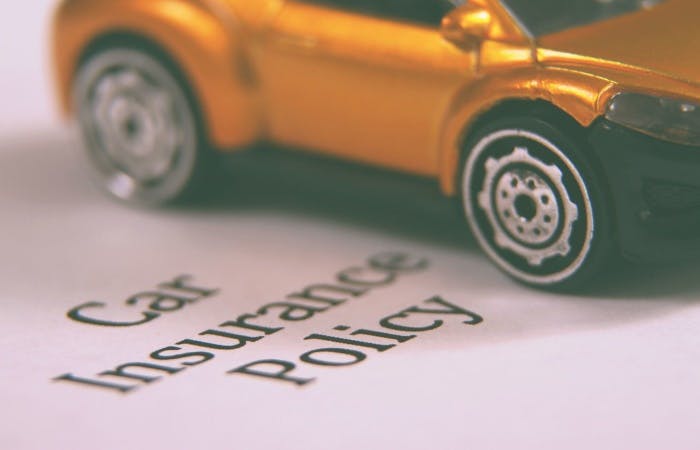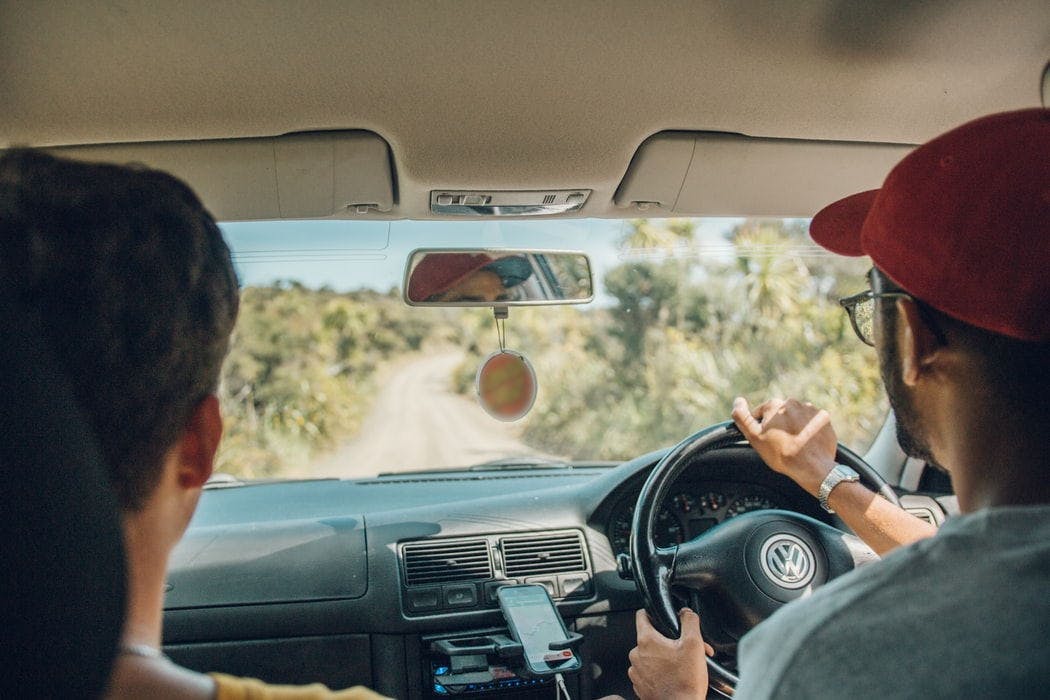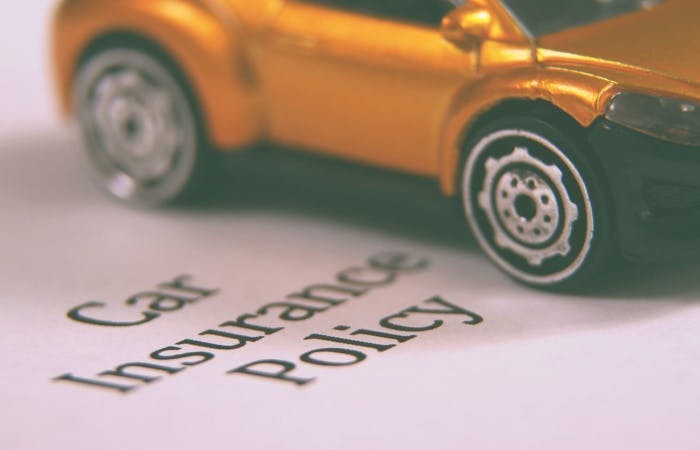
If you've been driving for quite some time now, you might not give much thought to getting behind the wheel of a family member or friend's car. With how costly car insurance can be, surely it gives you cover for driving other people's cars, right? Well, if you've been driving as if that is indeed the case, you might want to give it a rethink.
If you're driving other people's cars without the right cover in place, you could be breaking the law! In this guide, we're going to take you through the rules of driving other people's cars. From whether your current insurance policy allows you to drive additional cars to how you can get cover if you're not allowed, you can get the full lowdown here!
Car insurance: a quick breakdown
Before we actually delve into the ins and outs of driving other people's cars, we're first going to break down the main car insurance policy types. Don't worry—we'll spare you from having to read pages of information that you don't necessarily need. Instead, we'll give you a brief summary of each cover type.
- Third party: this is the minimum level of cover that is legally required in the UK. It will cover the cost of any damage to a third party in the event of an accident caused by you. Your car is not included in this cover.
- Third party, fire and theft: this offers the same cover as standard third party, but will also give you cover in the event that your car is damaged as a result of fire and theft.
- Comprehensive: this offers the same cover as above, but will also cover the cost of repairing any damage to your vehicle—even if you caused the accident.
If you're planning on practising privately outside of lessons, or are looking into getting a car after you pass, then why not compare over 55 insurers in minutes via MoneySuperMarket
Am I covered to drive someone else's car?

Many drivers who have comprehensive cover are under the impression that it automatically entitles them to drive someone else's car, but is this actually the case? Well, it all depends on the insurance provider. It used to be that Driving Other Cars (DOC) cover used to be a standard feature in almost all comprehensive policies. Nowadays, it's not nearly as common. Policies that do include DOC often come with strict stipulations. Let's take a look at a few examples of rules you might expect to find...
- The policyholder has to be 25 or over—so young drivers are automatically excluded from the cover
- The policyholder cannot own the car or have hired it
- Certain occupations, e.g., motor trade, will automatically exclude the policyholder from having DOC cover
Now, it's vital you understand that DOC cover is only really meant for emergencies. It does not cover you for driving other people's cars on a long term basis. So, if that's what you're intending on doing, you'll have to look into getting extra insurance cover. Additionally, even if you have DOC cover with a comprehensive policy, it usually only gives you third party cover in the other car. So if you end up acquiring a few dents, you'll have to foot the bill yourself. Not sure if your comprehensive policy includes DOC? We'd recommend you have a look at the terms and conditions of your policy. If you're still not certain, get in touch with your insurance provider.
With AXA you’ll get car insurance you can count on - they paid out on 99.7% of claims in 2018 – 2019. As well as being ready to help in an emergency 24 hours a day, every day, you can rely on car insurance awarded Defaqto’s 5 Star Rating – the highest standard.
What if I'm caught driving other people's cars without insurance?
If you fancy yourself a rebel, you might want to reconsider your stance. Driving any vehicle without insurance cover is illegal. If you're caught, you will receive 6 to 8 penalty points and a fixed fine of £300. If you're 'unlucky' enough to go to court, you could be given an unlimited fine and even be disqualified from driving altogether. (Which means all the hard work you put into learning to drive will have gone down the drain.)
If you thought insurance was pricey now, you'll have another think coming if you're caught driving without insurance. Anyone who has a driving offence on their record is guaranteed to face even higher insurance premiums. Of course, that's not even the end of the consequences you might have to face. If you're driving someone else's car without cover and end up in an accident, they'll be the one who is held accountable for any damage inflicted on a third party.
How can I drive someone else's car?
With DOC cover essentially being all but useless except in the event of an emergency, you'll have to take out additional cover in order to start driving other people's cars. So, what are your options?
Get your own insurance policy
Whilst you could technically get your own separate insurance policy for driving someone else's car, it could potentially make things slightly complicated. That is, you won't be able to find an insurance provider that will allow two separate policies on the same car. Additionally, some providers will only give you cover if you're both the main driver and registered keeper.
Unless you're going to be the main driver of the car, you shouldn't bother getting your own full insurance policy. Instead, it would be far more cost-effective—and simpler—to look into temporary cover or get added as a named driver.
Pay for temporary cover
If you used your own car for your driving test, you might already be familiar with the concept of temporary or short term insurance cover. As the name suggests, this type of cover is aimed at drivers who need cover to drive for a short period of time.
If you're only looking to drive someone else's car every now and again, this type of cover is ideal. The RAC, for example, offers temporary car insurance that can last from 1 hour to 30 days. Of course, if you're looking at driving someone else's car on a more long term basis, it might not be particularly cost-effective to keep having to top up your temporary cover every time it comes to the end of your cover period—bringing us to our next point...
Become a named driver
If you're going to be driving someone else's car on a regular basis, you might want to look at getting added as a named driver on their car insurance policy. By doing so, you can get the same level of cover as the main driver. Bear in mind, however, that the main driver must be the person who uses the car the most. If you're using it the most, yet you're down as the named driver, you're 'fronting'. Essentially, it means you're deceiving your insurer in order to get lower premiums. It's also worth noting that adding a named driver to an insurance policy can often raise the premiums of the main driver.
Driving other people's cars
So, you're officially covered to drive someone else's car—you've even got the documents to prove it! All that's left is to get behind the wheel and set off on your next road trip, right? Well, not necessarily. Whilst you might have stellar driving skills, they'll be made redundant if you don't familiarise yourself with the other person's car.
It's highly unlikely that everything in the other car will be exactly like the car(s) you're used to driving. The clutch, accelerator and brake pedals might be more—or less—sensitive, which means you'll have to change how you depress the pedals accordingly.
Additionally, you'll need to familiarise yourself with the location of controls in the car. You don't want to be driving down the motorway unable to find your windscreen wipers or fog lights in adverse weather! Fortunately for you, we're here to make things easier. Read our handy guide and get up to speed with the step-by-step process of getting used to a new car!
Finding the right insurance

Insurance can be a costly affair. Whether you're interesting in driving other people's or you're only just beginning your first venture into getting car insurance, you'll want to try and get the best deal possible. If you're keen to cut the cost of insurance, you'll be pleased to hear that we've got plenty in the ways of insurance advice. Feast your eyes on our handy guides below:
- Young driver insurance—everything you need to know: If you're 17-25 years old, you'll be stuck with the highest premiums around. Follow this guide to figure out how you can reduce your premiums and get the best deal possible.
- Black box (telematics) insurance—everything you need to know: If you're on the lookout for insurance discounts, you might want to consider getting a black box fitted to your vehicle. Find out how the process works with PassMeFast!
- How to get a good insurance deal as a learner: If you haven't passed your driving test yet, and you're looking to practise outside of lessons, find out what insurance cover you'll need and much more!
Super Save up to £319.82* on your car insurance with MoneySuperMarket*
*51% of consumers could save up to £319.82 on their annual car insurance premiums. Consumer Intelligence, May 2022, UK only.
FAQs
1. Can I learn to drive in someone else's car?
Technically, yes, you can—at least, as long as you're covered by insurance. If you're going to be learning regularly in their car, then you should look at getting added as a named driver on their policy. Alternatively, short-term cover might be more cost-effective. If you are practising outside of lessons, make sure you're following the rules of who can sit with a learner.
2. What is fronting?
Many drivers have realised that their premiums come out cheaper if they add a more experienced main driver to their policy. Of course, if this main driver isn't actually using the car frequently, then it's fronting. They're lying to insurance providers in order to get lower premiums. Tempted to follow suit? Fronting is illegal and could lead to your insurance being invalidated. If you're caught, you'll find it much harder to get insurance in the future.
3. Is third party the cheapest cover I can get?
Whilst third party insurance is the minimum cover, it's not always the cheapest. In fact, insurers have found that most third party holders tend to make more claims. As such, third party cover can often be the more expensive option.
4. Could a named driver affect my No Claims Bonus?
If you have a named driver added to your insurance policy and they end up making a claim, it will unfortunately affect your No Claims Bonus. Of course, it can vary depending on your specific insurance policy. If the other driver is only intending to use your car on a short term basis, it might be safer for your NCB if they just take out temporary cover instead.
5. How much will insurance cost me?
There's no real way to give you a concrete figure, unfortunately. The cost of your insurance can vary depending on the policy type you're looking for and the car you're driving. Additionally, factors like age, occupation, location and much more can affect the cost of your premiums. The best way to figure it out is to use a variety of comparison websites to get a good range of quotes.
6. Why is insurance so expensive?
Insurance is ultimately about risk. Insurance providers look at a range of factors—from what type of car you're driving to how frequently you'll be using it—to figure out how likely you are to end up making a claim. The more likely you are to make a claim, the more of a risk you are to insure and the higher your premiums will be.
7. How do I become the registered keeper of a car?
Looking to become the main driver of an insurance policy? You'll need to be the registered keeper of the vehicle. To do this, the current registered keeper of the car needs to amend the vehicle logbook (V5C) to show that you are now the keeper of the vehicle.
8. Can my insurer refuse to add a named driver to my policy?
It depends on how risky your named driver would be to insure. If your potential named driver has a poor driving history, for example, it's likely that your insurance provider will turn you down. Alternatively, they might hike up your premiums in order to deter you from adding them as a named driver.
Subscribe for driving advice, offers & more
We'd love to let you know about our courses, news and offers via email. You may unsubscribe at any time.
Star Genie Limited trading as PassMeFast. Company number 10093359
Copyright © 2024 owned by Star Genie Limited
PassMeFast, Blue Tower, MediaCityUK, Salford, M50 2ST
